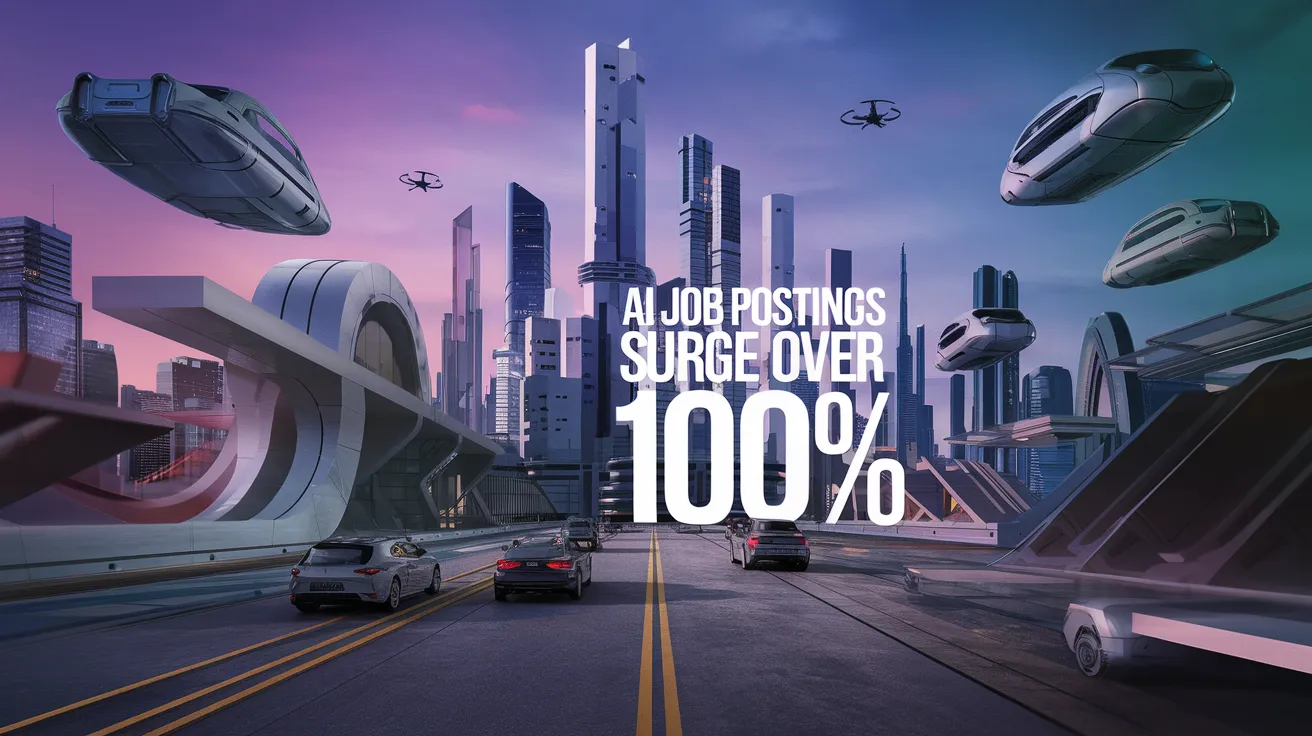AI Job Postings Surge Over 100%

As discussions around artificial intelligence (AI) frequently focus on its potential for eliminating jobs, an emerging trend shows that AI is equally capable of creating them. A recent report by the Brookings Institution highlights a significant rise in job postings mentioning AI, with AI-themed openings increasing by over 100% in just the last year.
Over the past 15 years, AI-related job postings have grown at an average annual rate of nearly 29%, compared to a mere 11% for overall job postings in the general economy, based on findings from labor market analytics firm Lightcast. Remarkably, the number of AI skill-related job listings across the U.S. has surged more than 700% over the last decade.
Despite this impressive growth, experts caution that AI roles currently make up a relatively small portion of the overall labor market. Goldman Sachs estimates that the peak pace of AI adoption may not be fully realized until the early 2030s.
Within the expanding AI job market, a diverse range of skills is in demand, including specialized roles such as AI engineers and more general positions like software developers. In 2025, over 80,000 job postings listed generative AI skills, a dramatic increase from 3,780 in 2010.
According to Cory Stahle, an economist at the Indeed Hiring Lab, there’s a growing need for consultants who can assist organizations in integrating AI technologies. Demand for positions focused on responsible AI practices—emphasizing ethical uses of AI—has also been rising.
“The definition of what constitutes an ‘AI job’ evolves daily as businesses discover innovative ways to responsibly incorporate the technology,” remarked Stahle.
Furthermore, positions that involve AI typically offer more attractive salaries. Job postings requesting AI skills tend to pay an average of $18,000, or about 28%, more per year compared to similar roles that do not require AI expertise, according to a separate report from Lightcast.
AI Job Locations and Growth
AI job growth is concentrated in tech-centric regions like Silicon Valley, which accounts for 13% of all related job postings, followed by Seattle at 7%, according to Lightcast data. However, growth in AI roles is also spreading to other regions like the Sunbelt and along the East Coast, particularly between Boston and Washington, D.C.
Mark Muro, a senior fellow at Brookings Metro, notes that universities play a pivotal role in driving AI job growth. Notably, AI skills are increasingly sought after in non-tech sectors, such as marketing, human resources, and finance. In 2024, over half of job postings requesting AI skills were from fields outside of IT and computer science.
While the adoption of AI in the workforce has not been uniform geographically, expectations are for rapid growth in AI integration as companies better understand its benefits and challenges.
“There seems to be a consensus on the importance of AI for productivity, which sparks enthusiasm among regional leaders and business stakeholders,” Muro concluded.